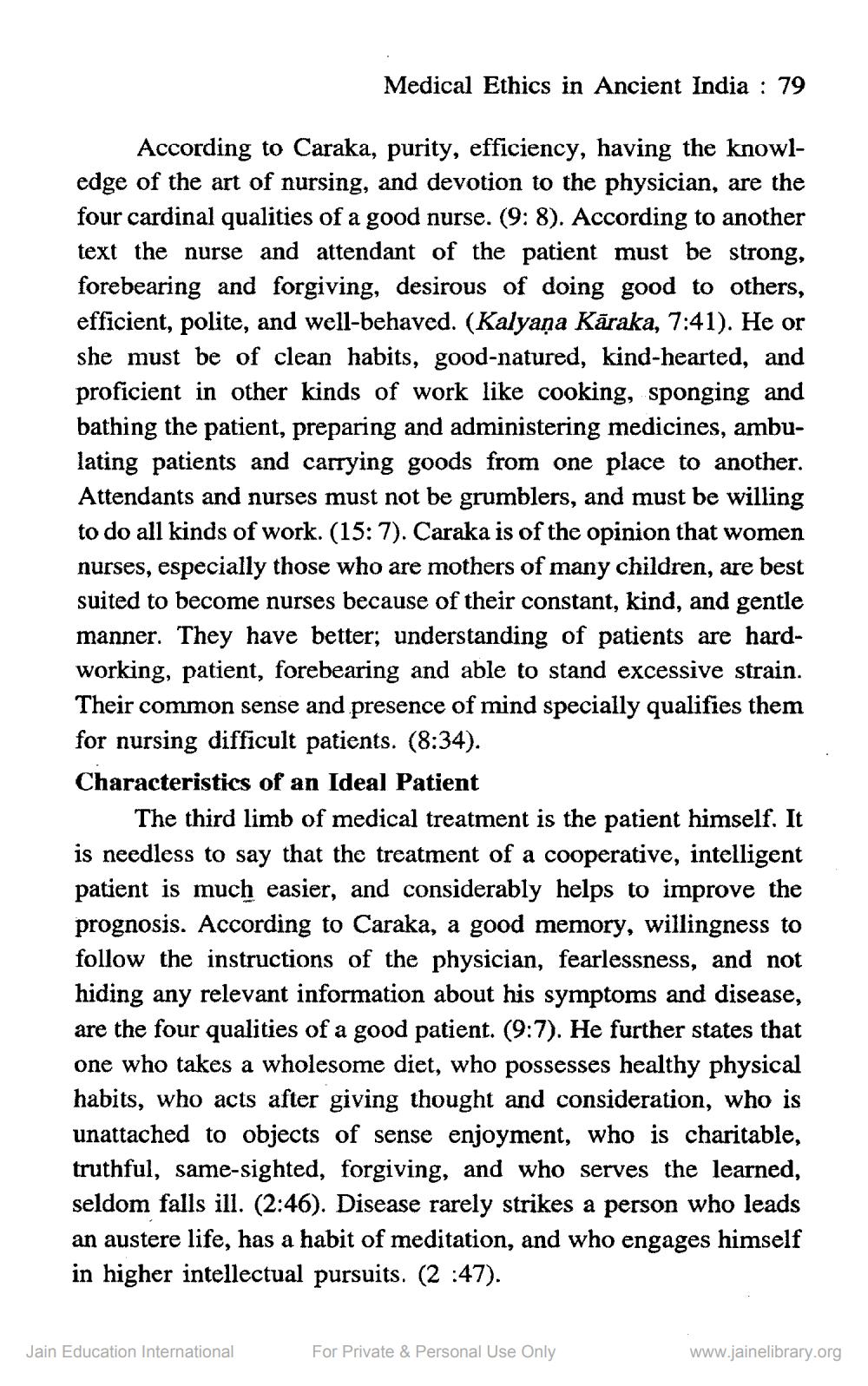________________
Medical Ethics in Ancient India : 79
According to Caraka, purity, efficiency, having the knowledge of the art of nursing, and devotion to the physician, are the four cardinal qualities of a good nurse. (9:8). According to another text the nurse and attendant of the patient must be strong, forebearing and forgiving, desirous of doing good to others, efficient, polite, and well-behaved. (Kalyaņa Kāraka, 7:41). He or she must be of clean habits, good-natured, kind-hearted, and proficient in other kinds of work like cooking, sponging and bathing the patient, preparing and administering medicines, ambulating patients and carrying goods from one place to another. Attendants and nurses must not be grumblers, and must be willing to do all kinds of work. (15: 7). Caraka is of the opinion that women nurses, especially those who are mothers of many children, are best suited to become nurses because of their constant, kind, and gentle manner. They have better; understanding of patients are hardworking, patient, forebearing and able to stand excessive strain. Their common sense and presence of mind specially qualifies them for nursing difficult patients. (8:34). Characteristics of an Ideal Patient
The third limb of medical treatment is the patient himself. It is needless to say that the treatment of a cooperative, intelligent patient is much easier, and considerably helps to improve the prognosis. According to Caraka, a good memory, willingness to follow the instructions of the physician, fearlessness, and not hiding any relevant information about his symptoms and disease, are the four qualities of a good patient. (9:7). He further states that one who takes a wholesome diet, who possesses healthy physical habits, who acts after giving thought and consideration, who is unattached to objects of sense enjoyment, who is charitable, truthful, same-sighted, forgiving, and who serves the learned, seldom falls ill. (2:46). Disease rarely strikes a person who leads an austere life, has a habit of meditation, and who engages himself in higher intellectual pursuits. (2 :47).
Jain Education International
For Private & Personal Use Only
www.jainelibrary.org




